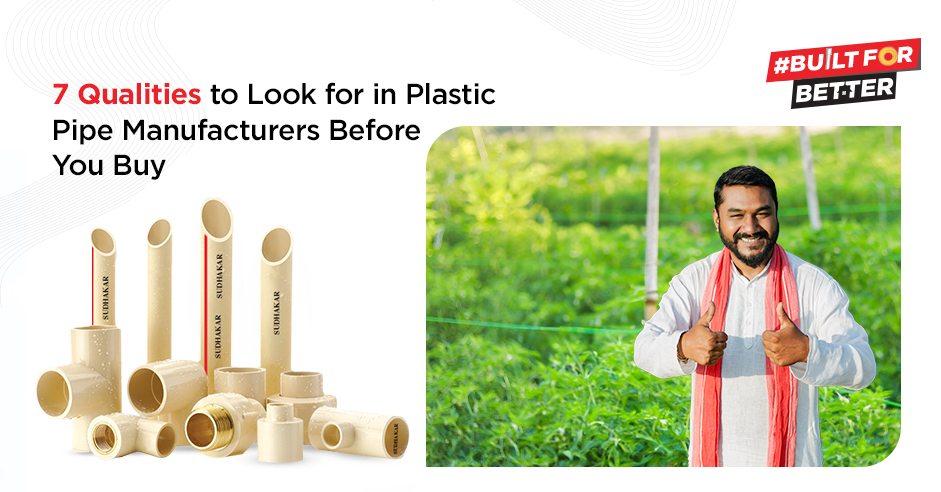When you’re a contractor, plumber, or builder, picking the right plastic pipe manufacturer can make or break your project. You’re not just buying pipes – you’re partnering with a brand you can trust. With so many plastic pipe manufacturers out there, how do you sift through the noise and find the good ones? Let’s explore. Here are seven qualities you should keep an eye out for.
1. Stringent Quality Standards
You don’t want to deal with leaks, cracks, or pipes that give out under stress. The best plastic pipe manufacturers stick to stringent quality standards. Look for ones that test their products as if their reputation depends on it – because it does. Pipes should handle extreme temperatures, pressure, and even rough handling on the job site. A solid manufacturer will back this up with data, like pressure ratings or lifespan estimates. For example, PVC pipes can last over 50 years if made right, according to industry studies. Ask for proof of testing or quality control processes.
2. Certifications That Reflect Experience
Certifications aren’t just fancy stickers – they’re a sign the manufacturer knows what they’re doing. Check if the plastic pipe manufacturers you’re eyeing have legit stamps of approval, like ISO 9001 and BIS for quality management. These badges show they’ve been vetted by people who care about standards. A manufacturer without certifications might be cutting corners, and that’s a gamble you can’t afford when you’re installing pipes underground or in someone’s walls. Explore their website or call them up to confirm.
3. Material Strength You Can Count On
Not all plastic pipes are made equal. The material matters – a lot. Whether it’s PVC, CPVC, HDPE, or something else, the manufacturer should use top-grade raw materials that won’t warp, degrade, or fail when you need them most. Good plastic pipe manufacturers will tell you exactly what their pipes are made of and why they work. For instance, HDPE pipes are tough and resist corrosion, making them a favorite for water mains. Ask about the resin quality or how they handle additives.
4. Customer Support You Can Depend On
Ever tried reaching a supplier after a sale, only to get silence? Yeah, that’s a nightmare. The best plastic pipe manufacturers don’t leave you hanging. They’ve got a team ready to answer your questions – before, during, and after your purchase. Maybe you need help picking the right pipe diameter, or a shipment got delayed. A reliable manufacturer will pick up the phone or shoot you an email quickly. Look for ones with a reputation for being approachable. Check reviews or ask around in trade circles.
5. Delivery Timelines That Work For You
Construction runs on deadlines. If your pipes show up late, you’re stuck explaining why the job’s behind schedule. Reliable plastic pipe manufacturers get this. They’ll give you clear delivery timelines and stick to them. A survey from a construction trade group found that 68% of contractors had delays tied to late material deliveries – so this isn’t a small deal. Ask upfront about lead times and how they handle shipping. If they’re vague or flaky, you’re rolling the dice on your project.
6. Fair Pricing
Good plastic pipe manufacturers offer fair prices that match the quality. Compare quotes from a few places, but don’t just chase the lowest number. A pipe that costs a bit more but lasts decades beats a bargain that fails in a year. Always ask for a breakdown of what you’re paying for.
7. Flexibility to Meet Your Needs
Every job’s different. Sometimes you need custom lengths, specific fittings, or pipes in odd sizes. The best plastic pipe manufacturers provide tailored solutions. They’ve got the know-how and equipment to tweak their products without making you wait forever. Say you’re working on a big commercial project that requires intensive piping for a new office park. A manufacturer that can adjust production to fit your specifications saves you time and hassle.
Wrap Up
Identifying the right plastic pipe manufacturers isn’t rocket science, but it takes some legwork to get it right. Focus on quality standards, certifications, material strength, customer support, delivery timelines, pricing, and flexibility. Get these right and you’ve got a supplier you can trust.


